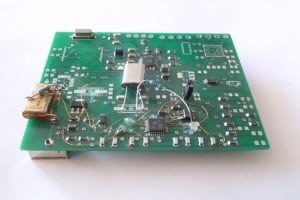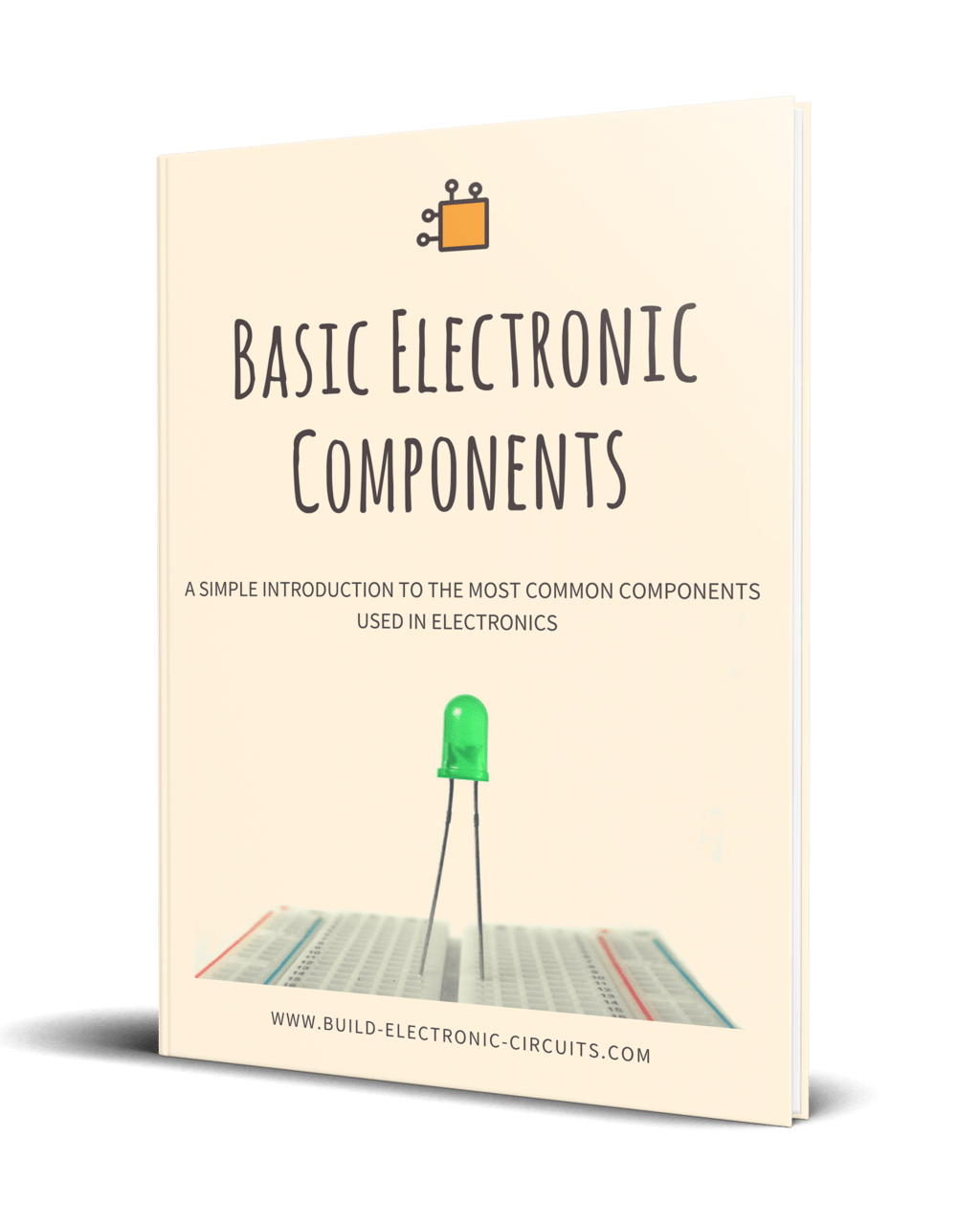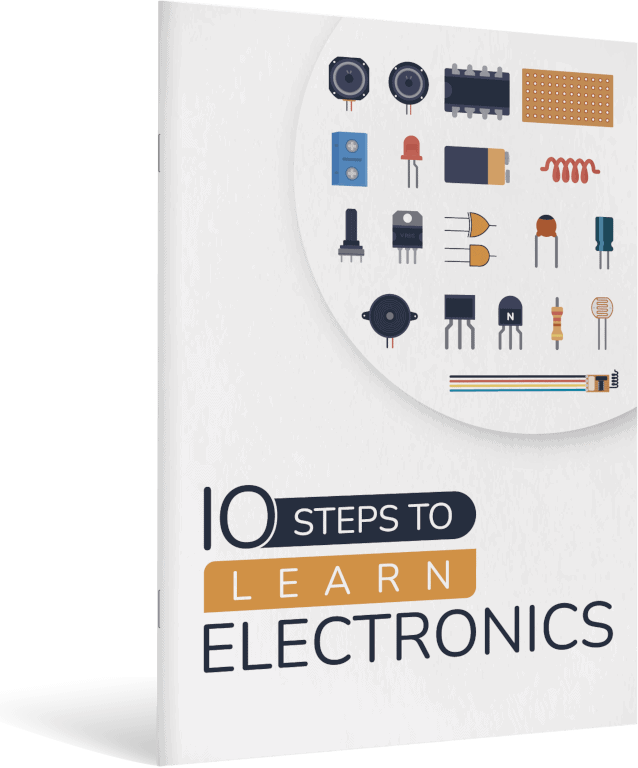 Can you get money for your old circuit boards?
Can you get money for your old circuit boards?
Apparently yes…
Anne Staley wrote to me a while back.
She was very enthusiastic about the environment and recycling. And she asked me if she could write an article on my blog about this.
I answered that it probably wasn’t something for my blog.
But she persisted. And she wrote the article and sent me. And as I read through it, I realized that it could be an interesting thing to learn about. Even as a hobbyist.
It turns out that you can actually earn money on your old circuit boards. Circuit board recycling sounds like a good idea =)
Read the article below:

Get Our Basic Electronic Components Guide
Learn how the basic electronic components work so that circuit diagrams will start making sense to you.
PCB recycling: Extracting metals from the heart of your electronics
by Anne Staley
According to this infographic shared by Sims Metal Management, a global electronic waste recycling company, electronics are now among the fastest growing waste streams in the country. What’s even more disturbing is the fact that most of this e-waste ends up in landfills and incinerators.
Out of the 3.42 million tons of e-waste generated in the U.S. in 2012, a whopping 2.42 million tons or (70 percent) went into landfills and incinerators, according to EPA data: Electronics Take Back Coalition
Only 1 million tons (or slightly less than 30 percent) was recovered for recycling. Such a shame, considering your old electronics are treasures of valuable materials that can be extracted, processed, and reused in a variety of products.
Some of the most valuable metals that can be recovered from electronics are hidden in what are known as their printed circuit boards (PCBs). For the uninitiated, a printed circuit board is the board base for physically supporting and wiring the surface-mounted and socketed components of an electronic device.
PCBs are found in almost all types of electronics – from your computers, cell phones, and cameras to your DVD players, televisions, and even some toys. Simple electronic devices usually have single-layer PCBs, while complex ones like computer motherboards can have up to 12 layers.
The dangers of not recycling
That PCBs are found in all types of electronics is clear, but what’s perhaps not so clear is why there is so much emphasis on recycling them. That’s something I wish to explain through this post.
As mentioned earlier, PCBs are a treasure trove of valuable materials that can be recovered and reused through the process of electronic waste recycling, but more on that later. First, I want to highlight the dangers of not recycling e-waste, or sending it to landfills.
Electronics contain a myriad of hazardous substances, which when sent to landfills, get released into the environment and leak into the groundwater – potentially polluting the water we drink and posing a serious threat to human health.
Incinerating them is no better. Not only is it a huge drain on resources, but the process also leads to emissions that contain harmful toxins and greenhouse gases believed to be the leading cause behind E-waste or electronics recycling is the most effective way to not just prevent pollution and possible ill-health, but also conserve natural resources. When we recycle valuable materials from electronics, we eliminate the need for extracting these elements from the nature. While resource conservation is a direct advantage of recycling electronic waste, cost and energy savings are the indirect benefits.
PCB: The hidden treasure
Most printed circuit boards are made from fiberglass or plastic, non-ferrous metal, and other recyclable materials. Gold is one of the most commonly found precious metals in integrated circuit boards, as it is an excellent conductor of electricity and is highly resistant to corrosion.
Additionally, printed circuit boards may also contain other valuable metals – silver, platinum, palladium, copper and nickel – thatcan be extracted from them and reused to make a variety of new products, including circuit boards.
Certified and credible e-waste recycling companies like Sims Metal Management typically use internationally accepted methods of processing PCBs, which means they’re sent to specialized smelters to recover precious metals. So, you must make sure you sell your electronic scrap to certified e-waste Sims has facilities all over the country that process electronic waste. You can also check the Yellow Pages to find more such facilities in your city. Most cities also organize e-waste collection drives from time-to-time, where you can take your electronic waste for safe recycling.
Here’s what you need to do:
1. Collect all your old and broken electronics in one place. Like I mentioned earlier, almost all types of electronic devices have PCBs.
2. Use a van or truck to haul the e-waste to the recycler of your choice/find out if the recycler offers pick-up services.
3. Make sure your e-waste is weighed, verified, tested and entered into a tracking system by the recycler on arrival.
4. All certified recyclers will ensure that your personal data is erased and toxins are removed from the devices before they’re refurbished or recycled.
5. Your electronics are now ready to be shredded to produce raw materials that are later used for manufacturing new products.
6. Don’t forget the money! Your waste is precious, so you can actually SELL it to these recycling I want to end with some interesting statistics by the U.S. Environmental Protection Agency (EPA).
According to the agency, one metric ton of circuit boards contain 40 to 800 times the amount of gold and 30 to 40 times the amount of copper mined from one metric ton of ore in the U.S.
Now it’s up to you to decide whether it’s worth recycling your old electronics or not!
If you’re interested to learn more, you can contact Anne through social media:
https://www.facebook.com/anne.staley.71
https://twitter.com/annestaley19
https://plus.google.com/u/0/111357957124376040467/posts
Click here to return to the front page

10 Simple Steps to Learn Electronics
Electronics is easy when you know what to focus on and what to ignore. Learn what "the basics" really is and how to learn it fast.
